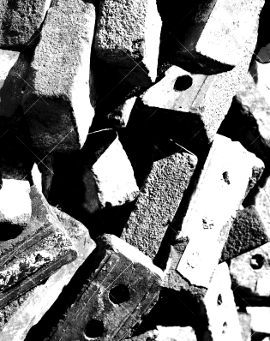Waste bricks tested
 Engineers say waste materials can be used to build bricks, saving money and resources over traditional methods.
Engineers say waste materials can be used to build bricks, saving money and resources over traditional methods.
Firing bricks and making mortar and cement is very costly, but organic chemists at Flinders University are working on more sustainable alternatives - building materials made from waste products. Currently, cement, iron and steel production account for more than 15 per cent of global CO2 emissions each year.
In a recent demonstration, the researchers used low-cost feedstocks to make lightweight but durable polymer building blocks which can be bonded together with an adhesive-free chemical reaction.
“In this study, we tested a new type of brick we can make from waste cooking oil, mixed with sulphur and dicyclopentadiene (DCPD). Both sulphur and DCPD are byproducts of petroleum refining,” says chemistry professor Dr Justin Chalker.
“The bricks bond together without mortar upon application of a trace amount of amine catalyst.
“All the starting materials are plentiful and can be classified as industrial waste.”
The Chalker Lab's polymer research team is collaborating with Clean Earth Technologies for further development. scale-up and possible commercialisation.
In the latest study, the team tested the new bricks’ mechanical properties and looked at ways to reinforce them in construction, including with carbon fibre fillers.
As well as repurposing waste materials into value-added construction materials, the polymer bricks’ sulphur-sulphur bond means they can be bound together without mortar like traditional building methods.
The bonding in this novel catalytic process is very strong, producing a sustainable construction material with its own mortar that will potentially streamline construction.
More details are accessible here.








 Print
Print